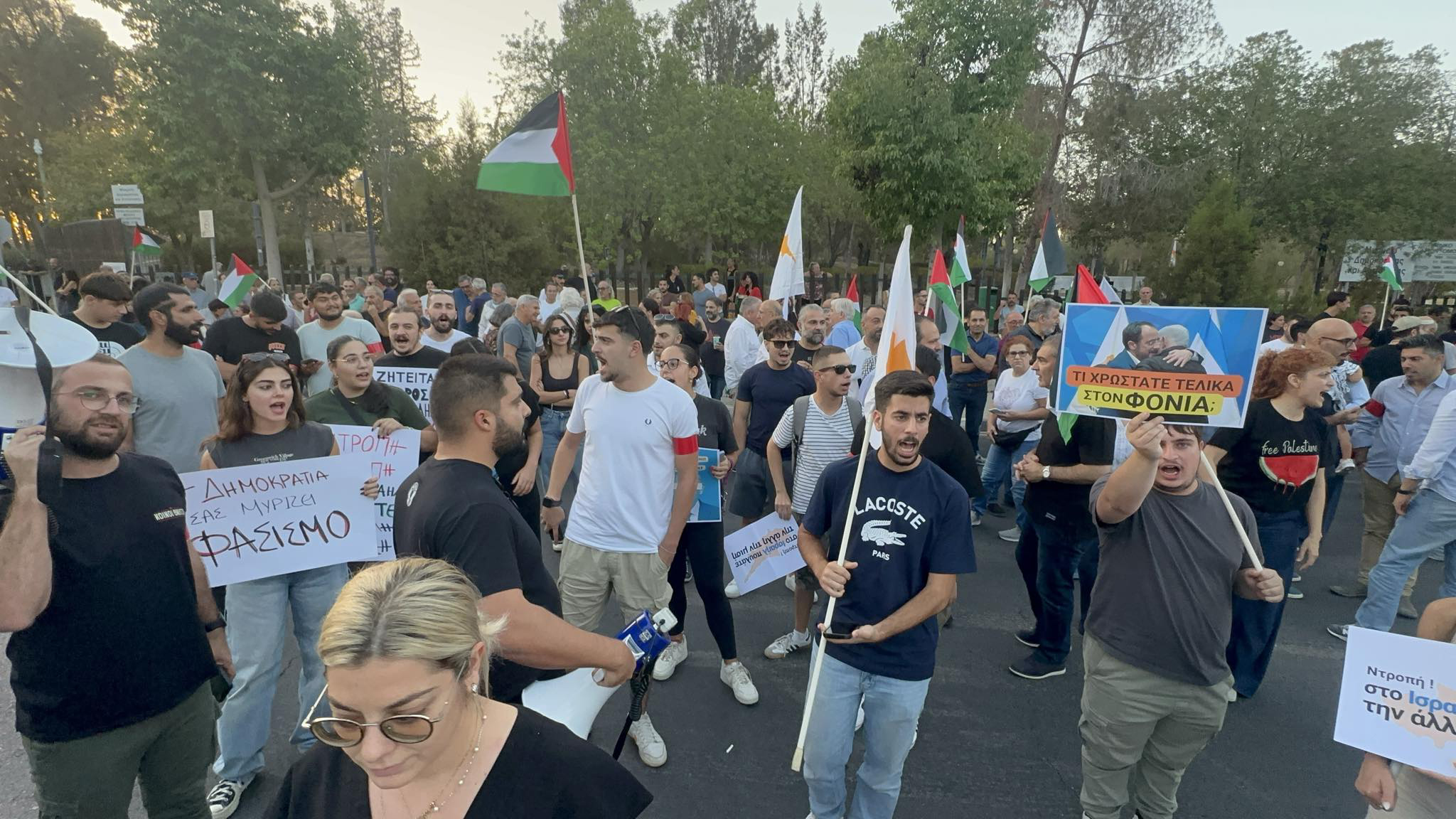The use of force by the police outside the foreign ministry, and across the road from the presidential palace, on Thursday night, to disperse a small crowd of demonstrators, protesting Israel’s interception of the flotilla bound for Gaza was lambasted by several political parties. They accused the police of using excessive force against a peaceful crowd, in what was described as an “unprovoked attack,” a case of “violent repression” and a “return to authoritarianism.”
The reaction of the parties seemed as excessive as the force used by the police, which could have been more accurately described as ‘disproportionate’ given the relatively small number of protesters who were, according to most reports, well-behaved and exhibited no aggression. The gathering was part of the global protests against the interception of the Global Sumud Flotilla, in international waters, and the arrest of activists on the boats by Israeli forces. The UN condemned the Israeli action as it violated the “laws applying to international waters.”
In an announcement responding to the political outcry, the police admitted using “proportional force and spray,” but only after the crowd refused to comply with orders issued by the officer in charge. The protestors had blocked the road, putting themselves in danger and causing traffic problems, said the police. Despite the efforts of the officer in charge, no person was found to speak to on behalf of the protesters so that the two sides could reach an understanding, while police requests for the protesters to move to the pavements were ignored. That was when the officer in charge asked for reinforcements.
When the anti-riot unit arrived, another attempt was made to persuade people to move on to the pavement and clear the road, but it was ignored, claimed the police announcement. This was when the police decided to clear the road by use of force. They also used force against a journalist covering the event, despite her repeatedly informing them that she was a reporter. The journalists union, which said she was thrown to the ground twice and pepper-sprayed, demanded an investigation and the exemplary punishment of the officers responsible.
Now if the police allowed the crowd of between 150 to 200 to stay on the road blocking traffic, would they not have been accused of failing to enforce law and order? Or should they have stood by and allowed the crowd to block the road for as long as it chose to, because it was protesting for a worthy cause? This seems to be the view of the political parties. Akel spoke of the “government’s subservience to the Netanyahu regime,” while Volt condemned the violence against citizens “simply to appease third parties.”
The police may have used disproportionate force, but this happens when protestors insist on blocking a road and ignore requests to move to the pavement. Talk of “return to authoritarianism” and “violent state repression” was grossly exaggerated.






Click here to change your cookie preferences